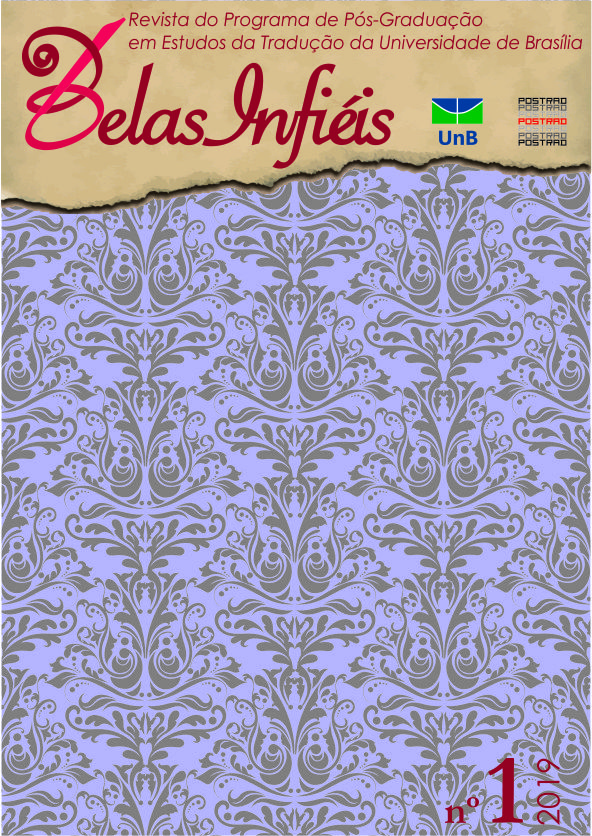The professionalization of sign language translators / interpreters in the city of Pelotas, Rio Grande do Sul, Brazil:
a narrated course
DOI:
https://doi.org/10.26512/belasinfieis.v8.n1.2019.12821Keywords:
Brazilian Sign Language, Translator/interpreter, ProfessionalizationAbstract
The present article resume some processes involved in the professionalization of sign language translators/interpreters in the South end of Brazil through historical documents and through the narrative of one of the firsts acting professionals of Libras in the city of Pelotas/RS. The empirical research includes documents and regulations, which guide the profession. The data were collected from other academic studies and from transcriptions of an interview made with one of the firsts translators/interpreters of the city. The results of this study allow us to understand how the sign language translators/interpreters were gradually conquering their space and circumscribing a specific field of action, jointly negotiated. An investment in the production of a profile with different purposes depending on the time and historical context has been observed in the documents and regulations that guide the work of these professionals, and a change of emphasis is identified: formerly such documents were strongly oriented towards the regulation of the professional's conduct; nowadays they are focused on the translation skills and to the fulfillment of consolidated rules of the profession. The oral testimony of a professional with extensive experience made it possible to restore some aspects about the history of the professionalization of translators/interpreters in the city of Pelotas, RS, allowing to understand how the processes of evaluation and validation of the work of these professionals were established, at a time when there were no specific regulations. Finally, it highlights the political features of the professional´s performance in articulation with the struggles undertaken by the deaf communities, in order to recognize, appreciate, expand, and grant visibility to the Brazilian sign language in Rio Grande do Sul.
Downloads
Downloads
Published
How to Cite
Issue
Section
License
Given the public access to this journal, the texts are free to use but requires the recognition of the original authorship and initial publication in this journal to be properly stated.
 The journal allows the use of works published for non-commercial purposes, including the right to submit the work to publicly accessible databases. Published contributions are the sole and exclusive responsibility of the author(s).Â



















